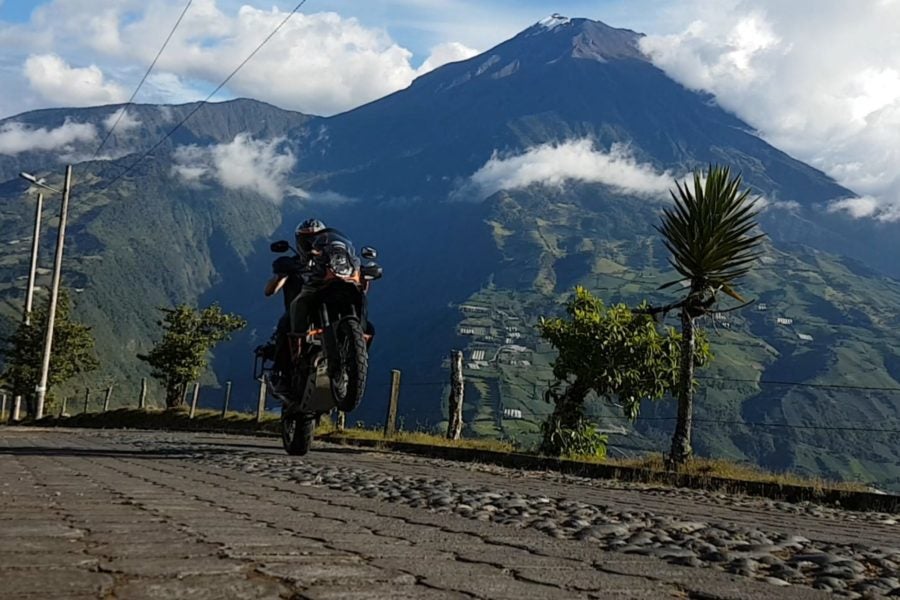Overlanders are mileage crushers. Riders who travel across whole countries put impressive numbers of miles on their odometers. But is this sufficient to enhance a novice’s riding skills?
As an overlander myself, I have to tell you that I was simply convinced that the more you ride the better you get at riding.
It’s easy to associate the classic 10,000 hours rule to motorcycling as well. Just practice something long enough and you’ll become a pro.
But it’s not what actually happens.
With a mere “coast to coast” ride across the USA a person can cover something like 2500 miles. On a larger scale, a rider who decides to travel from U.S. to South America, or from Europe to Asia, for instance, the mileage could significantly increase.
I’ve met some people also (like Expedition 65) that, as an organized tour, rode from Cartagena, Colombia, to Ushuaia, Argentina, clocking a staggering 10,000 miles (16,000 km) in something like two months—quite an intense experience for the average rider! I personally know people who have been going around the world, like myself, for over 5 years. Our mileage count goes easily over the 110,000.
So does this mean that overlanders become expert riders after all this riding through so many different countries, over complicated roads conditions, and under extreme weather?
Getting outside of your comfort zone does often mean “improving” some aspect of oneself. But there’s a catch, in my opinion.
The general overlander rides very conservatively and usually on a fully loaded (or even overloaded) motorcycle. The tendency seems also to have people riding vehicles bigger than they can handle, as the general idea is that those bikes provide better comfort during long runs. And sometimes the opposite happens: people riding huge distances on small bore motorcycles that are completely unfit for the job.
All these factors contribute to the actual riding limitations that inevitably occur through circumstance. Hence, it doesn’t necessarily mean that a rider who went twice around the world would be able to pop a wheelie or put a knee down in a corner.
In a sense, it is quite the opposite.
What overlanding actually does for people is improve their confidence with the machine. Pushing the boundaries in this sense can potentially improve your riding skills too, but it is mostly about building the courage to explore the unknown.
I rode my KTM 1190 Adventure all around the world and through some of the worst metereological and road conditions I’ve ever experienced in my life. That didn’t really improve my riding, in my opinion, as my riding was mostly focused on trying not to die, and trying to keep damage to my motorcycle at a minimum.
While being a competent and skilled rider is largely beneficial for commuters or recreational motorcyclists, it is not a necessary condition to go overland. Many first timers, with almost zero riding skills but lots of guts, have decided to go explore the world with whatever bike they had at the time. This created a number of new riders with mediocre riding skills and some excellent traveling stories after roaming around the planet.







